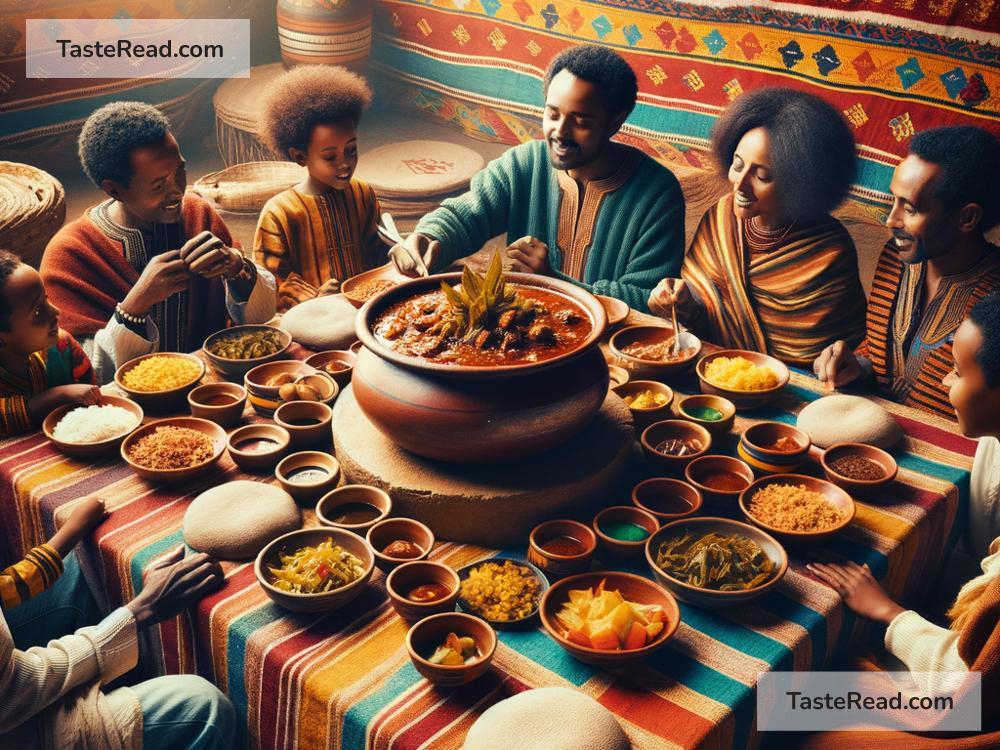The Journey of Doro Wat: From Everyday Ethiopian Fare to A Celebrated Delight
In the vibrant culinary landscape of Ethiopia, there’s one dish that rises above the rest, not just in popularity but in its cultural significance – Doro Wat. This spicy chicken stew, deeply flavored with a melange of spices, and often accompanied by the spongy, sour bread known as injera, is more than just a meal; it’s a celebration on a plate. But how did Doro Wat transform from a simple everyday dish to a special occasion delight in Ethiopian cuisine? Let’s dive into the flavorful journey of Doro Wat and uncover its story.
At its heart, Ethiopian cuisine is about bringing people together, combining flavors, and creating something that’s greater than the sum of its parts. Doro Wat perfectly embodies this philosophy. Traditionally made with chicken, it’s slow-cooked in a mixture of berbere (a spicy and earthy Ethiopian spice blend), onions, garlic, and a host of other ingredients that vary from one household to another. The result is a stew that’s rich, hearty, and deeply flavorful.
Historically, Doro Wat was a dish that could be found simmering in pots across Ethiopia. The ingredients were relatively easy to come by, and the slow cooking method allowed for the flavors to develop over time, making it a perfect dish for everyday meals. However, as time went on, Doro Wat started to take on a new role within Ethiopian culture.
One of the key turning points in the story of Doro Wat was its association with special occasions and religious holidays. In a country where a significant portion of the population observes fasting and abstains from eating meat during certain periods, the end of these fasting periods is often celebrated with feasts and gatherings. Doro Wat, with its rich and meaty composition, became the go-to dish for breaking the fast and celebrating together. This tradition helped elevate the status of Doro Wat from an everyday meal to a dish associated with joy, festivity, and communal gathering.
But it’s not just the breaking of fasts that sees Doro Wat taking center stage. Weddings, birthdays, and major holidays often feature this beloved stew. The preparation of Doro Wat for such occasions is a communal affair, with family members and friends coming together to help with the intricate steps of the recipe. The communal preparation is itself a celebration, filled with laughter, stories, and the strengthening of bonds.
Moreover, Doro Wat’s significance is also tied to its ingredients and the labor of love that goes into making it. The use of berbere, a spice blend that can contain upwards of a dozen ingredients, each roasted and ground to perfection, adds a layer of complexity and depth to the dish. The slow cooking process, which allows the flavors to meld together, also requires patience and care. Thus, serving Doro Wat at special occasions symbolizes not just a celebration of the event itself but also a respect for the tradition and effort that goes into preparing such a dish.
In contemporary times, Doro Wat has transcended its Ethiopian roots and has found a place in the global culinary scene. Ethiopian restaurants across the world serve Doro Wat, introducing it to an international audience. Yet, within Ethiopia and among the Ethiopian diaspora, Doro Wat retains its special status as a dish reserved for the most meaningful occasions.
It’s a testament to the power of food to convey love, tradition, and community. Doro Wat isn’t just a dish; it’s a vessel for cultural heritage, a means of bringing people together, and a celebration of Ethiopian culinary prowess. From its humble beginnings to its current status as a celebratory centerpiece, Doro Wat has embarked on a remarkable journey, reminding us all of the unique ability of food to cross boundaries, connect people, and create joy.
In conclusion, the transformation of Doro Wat from an everyday meal to a special occasion dish isn’t just a story about a change in culinary habits. It’s a reflection of Ethiopian culture’s dynamic nature, its values of community, and its rich culinary traditions. As we savor each spicy, comforting bite of Doro Wat, let’s remember the history and love woven into this extraordinary dish, making every occasion it graces even more special.


